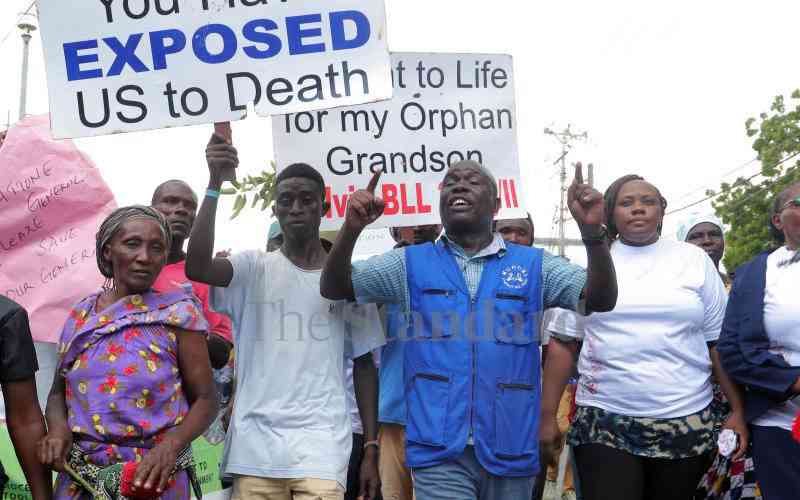×
The Standard e-Paper
Kenya’s Boldest Voice

Owino-Uhuru slum dwellers and activists during a past procession in Mombasa. [Robert Menza, Standard]
The July 16, 2020 ruling by the high court seemed like a glimmer of hope for Erick Odera and the victims of lead poisoning in Owino Uhuru. The court had awarded them a compensation of Sh1.3 billion, offering a semblance of justice for their immense suffering.